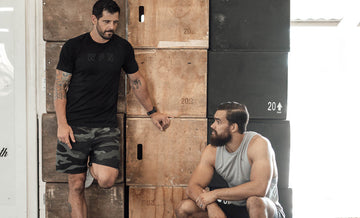How we can normalise asking for help? and why it’s so important.

We recently conducted an activity in a SCTN workout where participants were hanging off a pull-up bar for a given amount of time. If any participant felt they were going to fall they were only allowed to say one sentence which clearly stated their needs: “I need support”. Nothing else. If, however, someone fell off the bar given their unwillingness to ask for support, we reset the timer.

The purpose of the exercise was to normalise asking for help. The phrase “I need support” has no hidden meaning, nor is it ambiguous to the person receiving it. The activity got people in the habit of asking for help, with this mentality flowing into the rest of the session. This small exercise began to normalise the practice of people deliberately reaching out to others for help, being vulnerable and stating their needs.

The reason we included this exercise? Earlier that week we lost a brother. A man that I and SCTN oppo Luke knew from our days in the Battalion tragically took his own life. The first and most unanswerable question is “Why?”, followed closely by “What could I have done to help?” The answer is never clear and we’ll never understand why. What we can do though is begin the process of asking others for help, one small step at a time.
It has been mentioned in previous posts: “The chain of habits are too small to notice until they are too strong to be broken.” In the wake of a tragedy such as someone we know and love feeling like they couldn’t ask for help, we must begin to create new habits in seeking support, even in the smallest of things. In the practice of seeking assistance, we re-wire our brain to feel better about doing it, thus making it easier each time as that muscle grows stronger, ultimately making us able to seek help with more and more difficult tasks. Sound familiar? Maybe this was initially going to the gym, performing a mobility routine, coming to your first, second or third SCTN event, obstacle course race, or triathlon. The more you do it, the easier it gets.

However, you must start. A habit must first be established before it can be improved. Ask for help with cooking dinner, the dishes, unpacking the car, the laundry. Doing this with seemingly simple tasks lessens the element of fear, improving the chance of repetition and makes our brains more receptive when re-routing our neural pathways.
Being part of the SCTN means acknowledging that you are part of a team and utilising those assets, those strengths, those friends around you when you are struggling. Reach out to someone you trust. Ask for support. You wouldn’t let your team-mates suffer alone, so you don’t need to either.

Thanks to the participants of CrossFit Resolve who were willing to step up, be part of the SCTN, and ask each other for support.
Written by, Darren Hurford
(In loving memory of Nikolaj Helle-Broe, 1992-2022).





